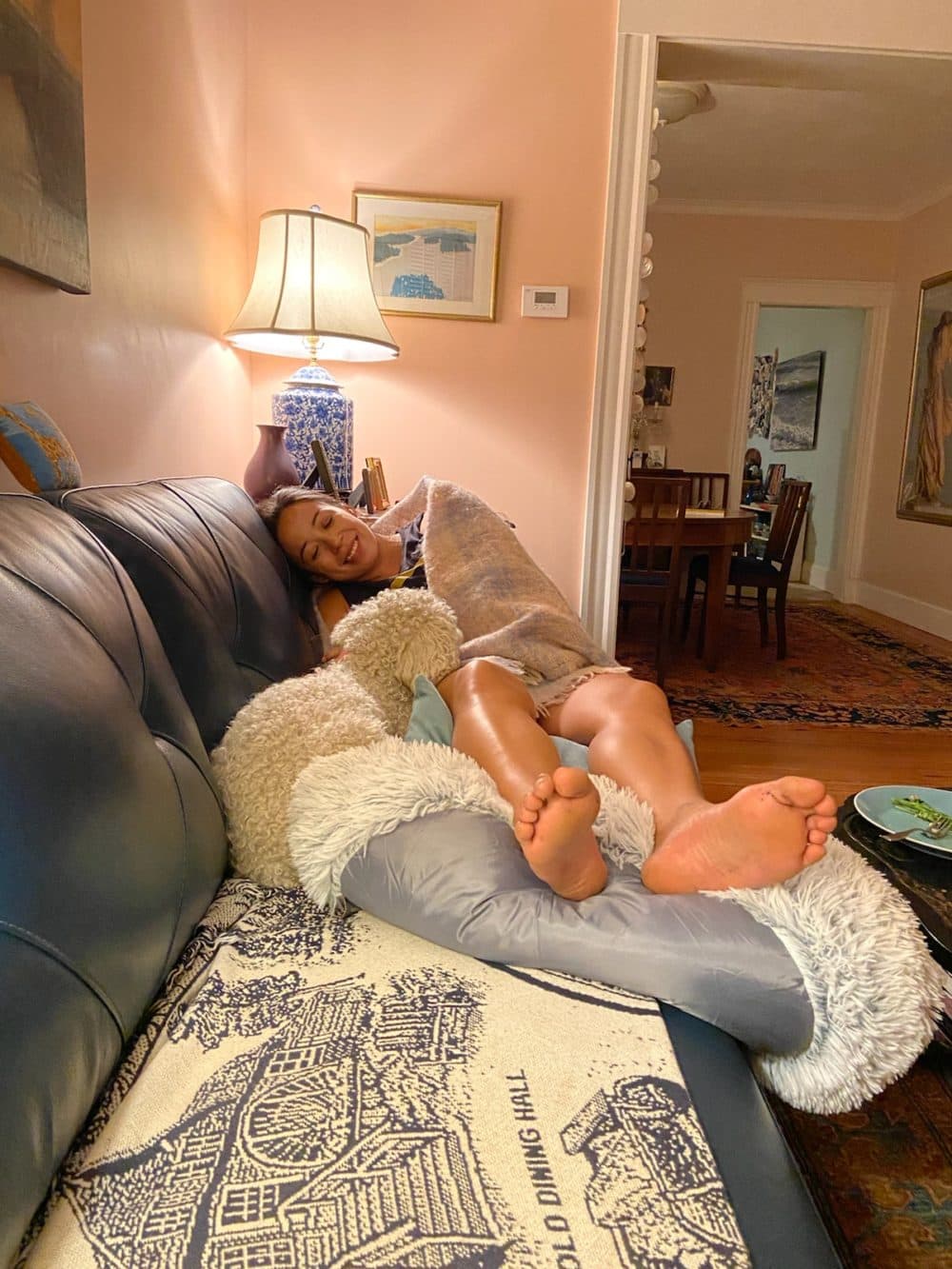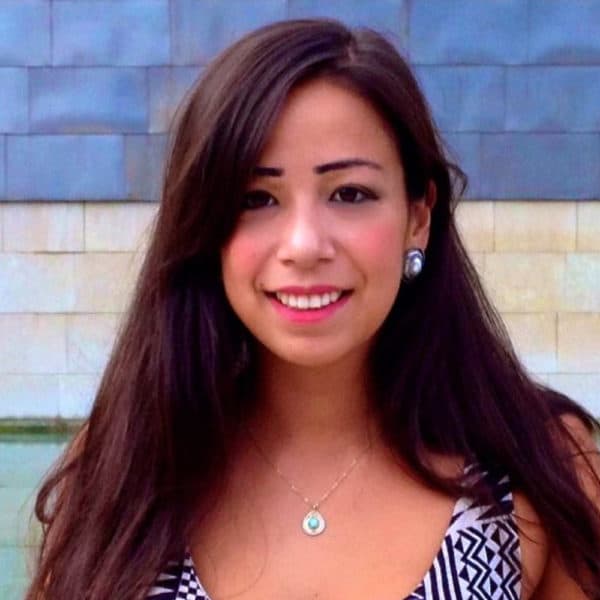Advertisement
Commentary
I Walked 40 Miles — To Walden Pond And Back — In One Day. Here's Why
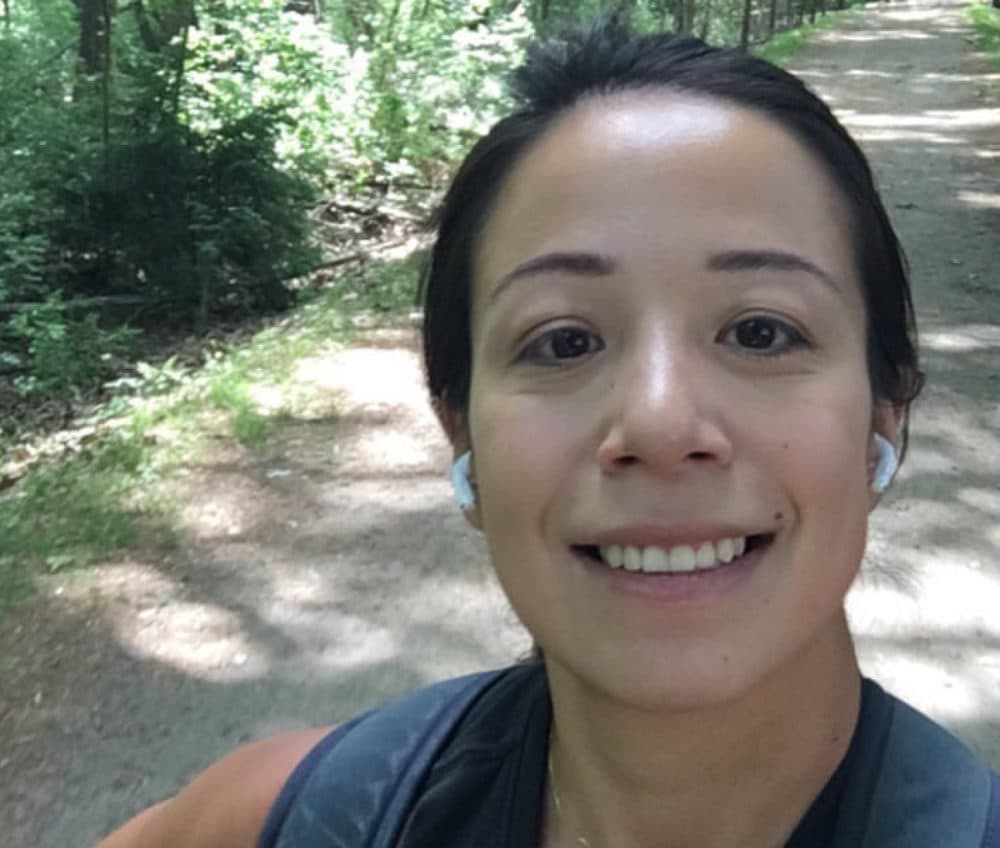
At dawn, I set off to walk 40 miles. It's summer in New England and the sky is a pale pastel. Off the quiet Somerville street where I’ve found a temporary home with a friend, the morning traffic is humming to a slow start, and the first Dunkin’ customers are groggily pulling into half-empty lots. My cellphone buzzes. The leaves on the Minuteman path sway like green tendrils just as my mother, on the phone from China and ready for bed, says in a strangled voice:
“You’re doing what?”
“Walking to Walden Pond and back. I’m raising money for the National Immigration Law Center.”
I’ve walked long distances before, but this is a record. I want to tell my mother: you don’t know how often I walk alone, and very far, aimlessly. When many retreated to their family homes during the pandemic, I could not — I have no family in the U.S. I made it through six months in a cheap monthly rental in Inman Square, then drifted in and out of temporary stays with friends. When I walk, the miles help settle the swirling thoughts that drive me outwards: a yearning to feel at home in my body, because there is nowhere else to call home.
On this day, I don’t feel so alone. Online, responses to my social media posts and donations to my GoFundMe are trickling in. In historic Lexington (mile 6), I sneak into a Starbucks for a bathroom break — about which I dutifully update my followers. I also want everyone to share my excitement about my refueling plan: I’ll fill my body only with food from immigrants. I had locally-made Bulgarian yogurt for breakfast before setting out. By Bedford (mile 10), I pull out a flaky, custardy Laopo Bing — Taiwanese wife cake, bought in Chinatown — from my backpack. It’s not yet noon, but I know that when I reach Concord, I’m going to pick up the one thing I crave most for my Walden picnic — Chinese takeout.
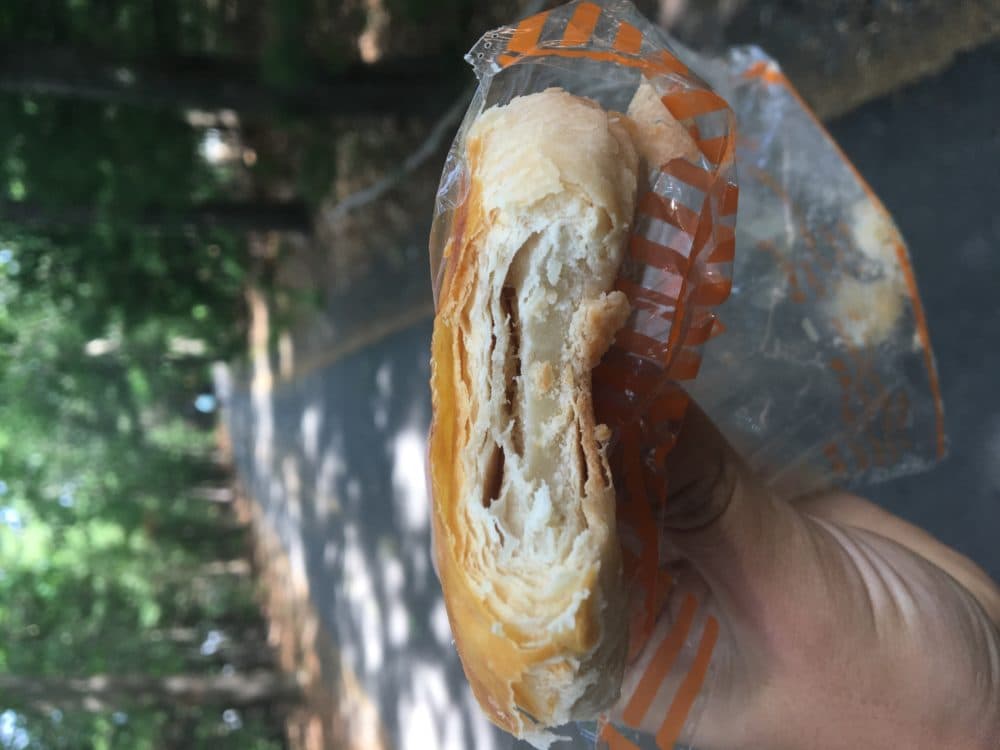
“Zhajiang noodles,” I tell the owner. “With shredded pork.”
When the soy and MSG fragrance escapes my backpack, a gaggle of suburban kids shoot me strange looks. I came to the U.S. alone at 16 to pursue academics. I didn’t know Sesame Street or The Brady Bunch, I’d never heard of lobster rolls, I didn’t know why all the teenage girls at my school wore cashmere sweaters and pearl earrings. I wasn’t American. And yet, I wasn’t an immigrant.
My parents came to the U.S. briefly for their graduate studies — freshly married in Northern China, my mother a French expatriate, my father from a town that borders North Korea. During my father’s first years as a student in Virginia, he cleaned the halls of his university to make tuition. Then they lived in a tiny apartment in New York, where I was born. Four months later, it was over. They packed their suitcases, took me along to northern China, and never came back. I often joke that I was an anchor baby who never anchored anyone. “You anchored yourself,” a friend once replied.
Advertisement
Having grown up in China, I don’t know how to drive — so here in America, I sometimes walk driving distances. I walk along highways, and people honk at me. Real Americans don’t have to walk, not this way! — the drivers seem to insinuate. Because of my tan complexion, when I lived in a tiny shoebox studio in Boston’s Seaport, “real” Americans often mistook me for the concierge in the lobby. At one building event, a blonde woman waiting by the drinks table turned to me and said: “white wine.” I was so bewildered that I grabbed the bottle and poured.
It’s after noon when I reach Walden Pond. Here I cross paths with tourists and immigrant families. I’ve never been here before, and Walden exists in my mind as a place mythical in the American psyche, where a blue-blooded American came to retreat by blue-tinted waters. I’ve never read Henry David Thoreau, but my Massachusetts boarding school curriculum did imbue the word “transcendentalist” with pioneer nobility — even if what was pioneered was woods within delivery range of a mother’s home-cooked meals.
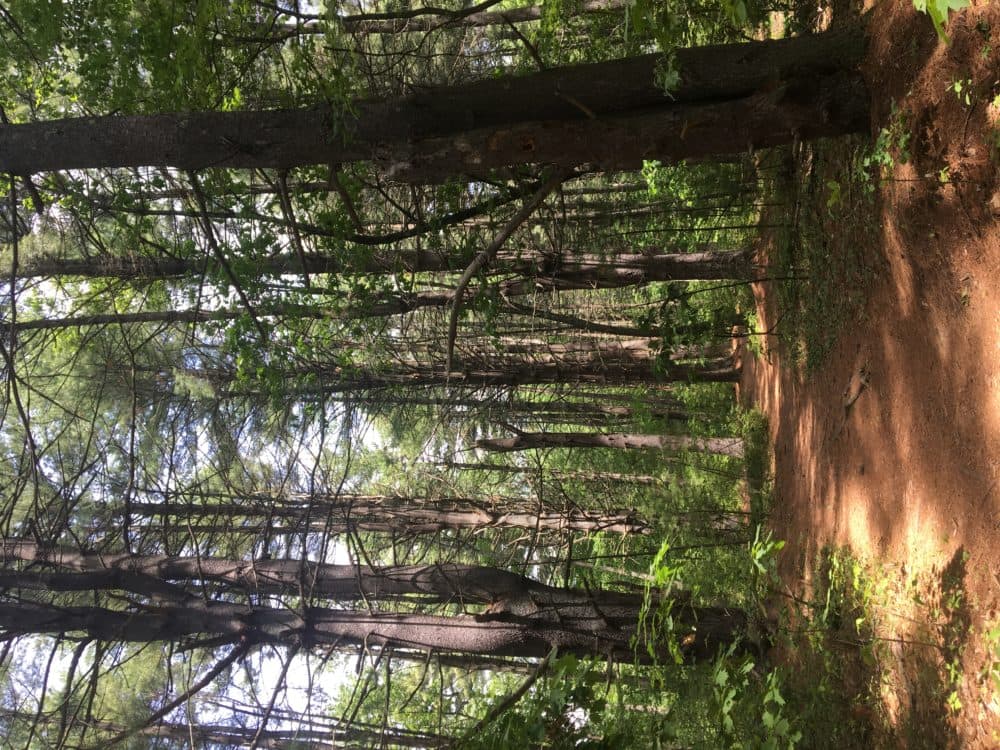
Untranscendent, I turn back from Walden. At mile 20, my rabid social media recording slows. Fatigue is settling into my calves as I labor to avoid gnarled tree roots.
At the 30 mile mark, it is already 6 p.m. The light softens, and I am still far from home, trudging now, my footfall heavy. I post a picture, though by now I can hardly type. Crossing back through Lexington, I feel faint, my mouth dry, and I barely remember going into a Walgreens and chugging two Gatorades. My mother wakes up in China and calls to check on my progress, and, sensing something in my voice, stays on the phone with me. Messages and donations keep coming. I think: maybe I cannot do this. I have the choice to stop.
The sky gets dark. The pain becomes a presence moving with me, but some how I keep walking. I get closer to home, and my friend and her dogs join me for a few miles. I can barely talk. I walk the last few miles tediously, in orbits around the block, trying not to burst into tears. I feel stretched to my mental and physical limit, and think about those for whom such walks are not a choice, the human migration where supportive friends and a warm home don’t await upon arrival, how the edge of the body and the mind must feel for these people who are alone, exhausted, searching for a new landing point where they can catch their breath.
Then, right there, in the dark, at 10:20 p.m., I hit 40 miles. I am steps away from my friend’s front porch, the warm lights within beckoning, and the dogs leap at me with ferocious love. I crumple onto the couch and remove my socks and feel no tears, but joy. I can’t quite believe I have actually done it, but more importantly, that I am so fortunate. To be choosing to walk, to be choosing to push myself to feel only a tinge of the truth that my good fortune and U.S. passport have always cushioned — that immigration is about leaving home, about daring to hope against the odds. That, most of all, it is about surviving the ache of distances.
